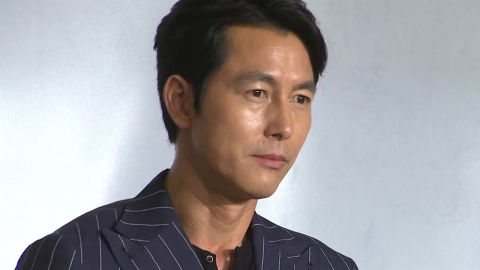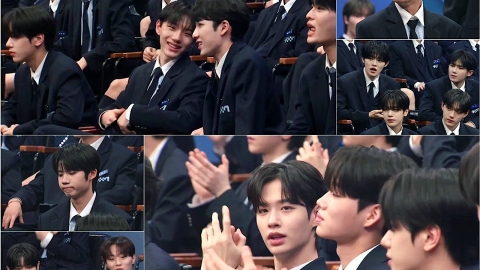■ Starring: Bong Young-sik, a visiting professor at Yonsei University,
* The text below may differ from the actual broadcast content, so please check the broadcast for more accurate information. Please specify [YTN Newswide] when quoting.
[Anchor]
Trump won the election by a landslide after a four-year hiatus. America First, which has become more powerful, is foreshadowing America First.
[Anchor]
The economic security landscape surrounding the Korean Peninsula is also expected to change.
Let's take a look at the related information with Bong Young-sik, a visiting professor at Yonsei University. Hello.
[Anchor]
Former President Trump, how do you see the factors that upset expectations and won by such a wide margin?
[Bongyeongsik]
It went against expectations and won a big victory. It is the first time since 2004 that a Republican presidential candidate has been leading in the national vote and also in the number of electors. If you look at why Trump won the election by a landslide and the Democratic Party suffered a crushing defeat, most of all, the economic failures of the Biden administration over the past four years. It's like the voter's votes are concentrated here. On top of that, Vice President Kamala Harris came out as the Democratic presidential candidate instead, but failed to come up with a concrete alternative here. In the meantime, the fact that he did not make any negative remarks about the four years of the Biden administration is that voters have many anxieties and complaints about Trump's Republican presidential candidate, but in the end, he should judge the government. The economy has been really hard over the past four years, but the Democratic Party cannot recognize our public sentiment and should continue to protect our democracy. Because Trump only said that it was too dangerous and a threat to democracy, it became solidified that he was a weak candidate who could not choose because he could not sympathize with why we were suffering so much and specifically offer an alternative to how to revive the economy.
In the case of Korea, Park Geun Hye was elected with 3.6% in the 2012 presidential election, and the winning factor was that voters in the so-called industrial era and those in their 60s or older gave all the votes. at a very high participation rate in voting What the opposition party failed there was how voters could vote for Park Geun Hye candidate. This is called bot shaming in English. It's not soothing the voters, it's being mean. How can you film Trump. How can you photograph the daughter of a dictator. How can you take a picture of the daughter of a pro-Japanese group? So from the voters' point of view, yes, we were wrong. I'm not doing it, but why do I have to do this or that when voting rights are my right? Democracy is not something we hate and support, but it was very difficult at the time. It was hard to make ends meet, but I don't recognize it, but if you keep being mean, you stay still and vote your own way.
And the Democratic Party continued to have moral superiority, but the American voters who suffered don't understand our suffering because Republicans and Democrats are establishment elite politicians. For example, isn't there Trump's political nemesis, Nancy Pelosi, the last Democratic speaker of the House, who was elected to the House again this time? We talk about democracy, gender equality, and minority rights, but from the perspective of voters, this is too much hypocrisy. Because Speaker Nancy Pelosi succeeded in investing in technology and invested a lot in Apple and Nvidia. That's why my personal assets are 130 billion won. Then, from the perspective of voters, if I have 130 billion won in wealth, I can say all the good things like Nancy Pelosi. However, the situation is so difficult, and I've lost my job for four years and suffered, and the Democratic Party has not said anything about it. If so, no matter how dissatisfied Trump is and how much the Democratic Party sympathizes with Trump's threats to democracy, the votes are ultimately returned that I can't take a picture of the Democratic Party, which has done wrong over the past four years, and has no remorse.
[Anchor]
In addition, the possibility of winning the Senate and House races has increased. In this case, you have taken control of all legislation, administration, and justice, but the U.S. priority will be strengthened during Trump's second term in office, should I look at it like this?
[Bongyeongsik]
That's right. America First is not now solidified by President Trump's landslide in 2024, but in fact, it should be said that America First has become the mainstream of American politics since Trump's first election in 2010. So now America is Trump's America. This is not what we see as the fall of the Democratic Party or the advance of the Republican Party. In fact, candidate Trump won in 2016 and won in 2024 without being beholden to senior Republicans. Take a look. During the Trump campaign, none of the Republican Party's leading figures, former Republican presidents, helped. And Trump didn't even ask for help from former South Carolina Gov. Nikki Haley, the U.N. ambassador, who competed with him this time. Even if I lost women's votes independently, I won a landslide victory by saying that I would go with Trumpism.
So Trump, one of at least two of the most influential people in American politics over the past eight years. The political philosophy put forward by Trump, who has been president since 2016 and lost the presidential election in 2020 but will make a comeback and become president for the next four years. It's obvious that the value will be the central philosophy of the United States. This was simply won by the Republican Party. Or it's not that Trump won unexpectedly, but that America has changed like this. This is the reality.
[Anchor]
I feel afraid of the professor's words that Trump is the United States, but now there is also this question of how Korea will respond to this. Above all, the defense cost issue is a hot topic. President-elect Trump said earlier that Korea is a money machine. How do you see the possibility of renegotiating?
[Bongyeongsik]
I think it's very high. If you look at Trump's first term and the election campaign this time, Trump's characteristics as a political leader are that he keeps his promises no matter how tough he expresses it. after one's election as president I have a good relationship with Chairman Kim Jong Un during Trump's campaign. If so, there is a high possibility of direct negotiations with North Korea. We will strengthen border defense and deport illegal immigrants. Then, we will quickly realize it as a policy as it is and actively promote tariff policies. Then it will become a reality.
The most important thing is that we don't have unfounded hopes, but we need to be thoroughly realistic about accepting reality as reality and how to protect our interests there. From that perspective, I received too little defense money. If I were president, I should have gotten nine times more than that, but it's almost certainly going to be the official policy of the Trump administration. And these defense renegotiations can be nullified and renegotiated at the presidential level without going through Congress. If so, I think our government is well aware of this realistic aspect.
So, haven't the ambassador to the United States and the president's office's security office negotiated for many years now? Setting this as a central criterion for now and saying that he would talk to the United States seems to be a cautious but accurate statement of position that the Trump-era negotiations are likely to reverse at any time and demand a nine-fold increase again, no matter how many years of negotiations were under the Biden administration.
[Anchor]
If the negotiations are not smooth, there is a possibility that the same argument as the withdrawal of U.S. troops from Korea will be made as in the past, so what do you expect in this regard?
[Bongyeongsik]
That's very possible. President Jimmy Carter, who was elected president of the Democratic Party and reduced the number of U.S. troops in Korea during Nixon, also clashed with the Park Chung-hee administration. If so, the Trump administration is likely to take full advantage of the withdrawal or reduction of U.S. troops from South Korea if the defense cost settlement does not proceed properly or needs to pressure South Korea on other issues. For example, in the first term, didn't you actually put these cards into action against Chancellor Merkel and the German government? Germany didn't provide 2% NATO financial support to GDP, so we redeployed a third of the U.S. troops in Germany at the time. In that way, it is highly likely that Trump will actively use the reduction of U.S. troops in South Korea or the withdrawal of U.S. troops from South Korea as a bargaining chip in many ways. You have to look at this in a big way. To describe Trump, it's a random talk, but from a voter's point of view, it's a random talk.
So, it was expressed in random words, but I kept my promise to do this to the voters for the past four years of the first period. And this time again, it's likely to keep this and Trump can't win a third term. Since this is the last four years of the presidency, there's no reason to be popular with voters no matter how you do it for at least the first two years, right? Therefore, it is highly likely that he will actively push ahead with what he has said he will probably do as he believes. It is a difficult time rather than a vain hope for this, but a difficult time will come, but for two years, we accept and respond to it. If there is one helpful positive, it is predictable. So, it's good if there's no rainy season and heavy rain and there's no flood, but if you know that, it's good if you don't have it, but you can start preparing in advance. So if it's a rude talk to act, it's a rude talk, but we'll push it, so we don't have vain hopes, but we'll be thoroughly prepared for it and minimize damage. It would be wise to respond in this way.
[Anchor]
Trump said he always keeps his word, but he kept mentioning Trump's imposition of all-round tariffs earlier. I think it will have a pretty big impact on China and further our economy, what do you think?
[Bongyeongsik]
That's right. Now it's a fait accompli, and as reported earlier, not only Korea but also EU member states are preparing for a tariff bomb. Since China is the main target of the tariff bomb, it seems that it is already preparing for renegotiation with Trump and how to respond to such a tariff bomb by realizing the domestic demand policy. It's going to be a very difficult situation, but if we have to think about the positive side, in the 1980s, the U.S. actively promoted these tariff bombs and protectionist policies, and the main target was Japan. In particular, Japan's automobile industry and Japan's semiconductor industry were targeted for protection trade policies.
But when we think of a hegemonic war between China and the United States or the United States, we are worried that there will be a firestorm in the whale fight. Of course, it's true. But nevertheless, if there is a fight, there is also a father-in-law. In the 1980s, the United States hit Japan in the automobile industry and the semiconductor industry in protectionist policies. As a result, American companies benefit, but Japanese semiconductors, which are essential, have disappeared. If you buy Japanese semiconductors because it's not enough, the profit rate has risen tremendously, and for U.S. consumers, U.S. cars are still too expensive and broken, but Japanese cars are too difficult to obtain in the U.S. domestic market. So rather, the U.S. auto industry has had the highest return in history. Although the number of exports has decreased, the rate of return has risen significantly because U.S. consumers still prefer Japanese cars, and U.S. consumers and U.S. companies have begun to buy Korean Samsung Electronics Semiconductors and Korean Hyundai Motor because Japanese semiconductors and automobiles are difficult to buy, and U.S. semiconductors and automobiles are unreliable.
So, of course, what we are concerned about this time is that Trump will come out with tariff bombs and protectionism, but we are not the main target. It's China. If so, there must be some damage caused by our involvement with China. However, at the same time, because China is the target, there will be a gap in Korea, and even if it causes damage to the Korean economy as a whole. The Korean economy has not only automobiles and semiconductors, but also the oil refining industry. Isn't there also shipbuilding? If so, Trump-style trade policy is rather a green light for the oil and shipbuilding industries. So, it's important to look at the whole picture, but divide it into pieces and see which parts will be helped by Trump's trade policy and will have good opportunities and make the most of it.
[Anchor]
Then, in the midst of this, Korea has made the largest surplus to the U.S. ever. As you said earlier, you expected China to be the main target, but what do you think about the possibility of imposing high-rate tariffs on Korea rather than universal tariffs?
[Bongyeongsik]
Trump-style trade policy is open to all possibilities. That all possibilities are open is that any card will be reflected in real policy when asked if this helps the United States. But again, no matter what kind of trade policy Trump has, the main target is China, not us. This also has strategic and security competition, so Trump is saying that all U.S. companies should be brought back into the country in this way because there is a consensus in the U.S. that if we rely on China for manufacturing, we cannot win in terms of hegemony competition between the U.S. and China and foreign and security strategies.
So, not only the economic aspect, but the security aspect of the Trump administration's economic and trade policy is very strong, so no matter how much tariff bombs are thrown, it is likely that the fire will spread to us gradually, rather than starting with Korea. And from the standpoint of separating China from us and beating China, there may be areas for the U.S. to cooperate more closely with Korea in the areas of trade, investment, and technology. If we take advantage of that, we need to be prepared to minimize the damage to the inevitable parts and to use them as an opportunity for us to benefit from hitting China, not because Trump was elected and protectionism began.
[Anchor]
In a phone call with President-elect Trump and President Yoon, he said, "We need help from Korea," referring to the shipbuilding industry. This background is.
[Bongyeongsik]
In principle, the United States has banned U.S. warships from repairing, maintaining, and manufacturing U.S. warships to other foreign companies in order to protect the nation's strategic interests. But the technology of a shipbuilding powerhouse like Korea is much more reliable than the technology of the shipbuilding industry in the United States. That's what the Trump administration is talking about, which is very tempting to improve the efficiency of governments and industries. So you said you'd leave Elon Musk with this wasteful and lazy federal government first.
It is intended to prevent the waste of taxes by the American people by introducing a business mindset, but from that point of view, President Trump himself said, "The U.S. shipbuilding has regressed a lot, and if we cooperate with Korea, it will be a win-win." As I mentioned earlier, Trump's protectionist policy. Since it is a U.S.-first policy, we don't just lose money, but there may be a gap in it, which is an unexpected asset. It is important to understand this preemptively and communicate closely with the United States to continue to create discourse that it helps to bear the fruits of the U.S.-first policy, and that what helps Korea is not necessarily bad for the U.S., but what helps Korea is also helpful for the realization of U.S.-first policy.
[Anchor]
Let me ask you a question regarding the international situation. Regarding the international situation, President-elect Trump said he would end the war in Ukraine within 24 hours of taking office. How do we use detailed methods in this regard?
[Bongyeongsik]
The president's inauguration day is January 20, 2025 in American time. If so, it remains to be seen whether the war in Ukraine will be ended by January 21, 2025 Eastern time. And you asked what specific alternatives you would propose and devise policies, but in a way, Trump's position may be simple. It will no longer provide financial and military support to Ukraine. So Russia-Ukraine this is a war between two countries and what the United States prefers is a swift end to the war. It can be understood that the United States will not care about such form or content. That's why the war has so far intensified, especially in the Kursk region. Even in the case of Korea, the most casualty and fierce part of the 1950 Korean War was after the armistice negotiations began.
Because it was premised that there would be a power outage, we had to secure an extra inch of land before signing the armistice agreement. So it's more fiercely secured territory, and that's the basis for thinking that the war in Ukraine is likely to intensify at least until January, when President Trump takes office. However, from our country's point of view, not everything is dark and unfavorable. Because if the war in Ukraine ends, Russia doesn't need North Korea anymore. Then, this military and strategic close relationship between North Korea and Russia, which we were concerned about, will disappear after the end of the war in Ukraine.
Then, North Korea's dispatch of troops to Russia, which we were concerned about, and North Korea's military support and export to Russia are no longer very urgent on the Russian side. Then, even if the war in Ukraine ends as Trump guaranteed, there is an advantage for us because the war in Ukraine, which we are concerned about, is groundless for Russia's concerns about the transfer of high-tech technologies to North Korea or raising the level of security cooperation. Again, just because Trump was elected doesn't mean we're going to have a hard time with everything. There are a lot of difficulties. However, if you tear it into pieces, there are parts that can be used positively, so there is a part that helps the Trump administration to the United States and helps Korea by accurately grasping it. It is important to continue to communicate this discourse that benefiting Korea's national interests does not mean that the United States will lose money.
[Anchor]
I think I feel comfortable because you said a lot of positive things.
We'll also talk about North Korea. Isn't another variable in the war in Ukraine now the dispatch of North Korean troops? Trump has been showing off his friendship with Kim Jong-un, so how much pressure will North Korea put on for this ceasefire cooperation? How do you see it?
[Bongyeongsik]
North Korea's influence over the United States, which is not yet certain. From the standpoint of North Korea, especially looking forward to Trump's election, the Biden administration hasn't even tried to talk about anything in the past four years. However, since the U.S. president, which North Korea preferred, was elected, it is expected to begin preparations for direct and direct negotiations with President Trump in the future. But the military closeness between North Korea and Russia was realized at least because Russia wanted it. But if the war in Ukraine ends, as I said earlier, there will be no basis for Russia to rely so fully on North Korea, so North Korea's leverage in negotiations with Russia will also be greatly reduced. If so, the Kim Jong-un government is likely to prepare for negotiations with the United States by disarmament in a way that recognizes North Korea's nuclear armament.
[Anchor]
In the case of Trump, he has expressed his intention several times that he will talk directly with North Korean leader Kim Jong-un. Then, what do you think of the possibility of a third summit between the U.S. and North Korea?
[Bongyeongsik]
The form and timing may be different, but I think it is very likely to be realized. Again, if I ask you a question, I think our government official should take a look at Trump's record during his first four years and see if there was anything Trump promised during the 2016 presidential election that he didn't keep. If not, it can be said that Trump finally realized what he said as a presidential candidate, no matter how controversial and problematic he was after he was elected president. Then, during the 2024 presidential election, Kim Jong-un was mentioned several times. Even if there is advice from aides around you that it would be a loss, you will meet if you mentioned it several times and said you would meet. And there is a very high possibility of Korean passing when negotiating. So what we're concerned about is a very well-founded concern. And there is certainly a concern that such negotiations will be concluded by advertising it to domestic voters that the North Korean nuclear issue has been resolved by simply covering the lid rather than denuclearizing North Korea.
So what should we do? During the last Moon Jae In administration, my partner was the first Trump administration. At that time, there was one thing the Moon Jae In government did well and one thing it did wrong. The right thing to do is look at Trump's North Korea policy as it is. So we built a bridge between North Korea and the U.S. and the U.S. for the first time in history. So, even if South Korea has some passing, we have prepared a way for North Korea and the United States to directly engage in diplomatic transactions at a very high level to resolve the military tension on the Korean Peninsula. That can be seen as a very flexible and effective policy toward North Korea.
So what did the Moon Jae In government do wrong? I was too inferior to Japan. So, when the Trump administration asked how to deal with North Korea, there were stories from the Moon Jae In government and the South Korean government, but he also listened to what the Abe administration in Japan gave, and as the two Asian allies were different, it was difficult for the Trump administration to trust the South Korean government and accept the Abe administration 100% of the words. Then it was based on the fact that I listened to this selectively, but in the end, I raised my hand more in what the Abe government said, which ended in Hanoi in February 2019 with Kim Jong-un and no deal. At that time, the Abe administration should continue not to trust the Kim Jong-un administration too much. Second, even if we negotiate heavily with North Korea, I hope they will raise the issue of kidnapping Japanese people, but if you open the lid and look at the Hanoi negotiations later, you will hear the Japanese government's position rather than our government's story, so if South Korea and Japan persuade Trump that it would be better to do this about North Korea with similar voices and similar content, the effect will be stronger.
[Anchor]
From what the professor said today, we can make use of the crisis as an opportunity. We can summarize these things into the main points.
So far, we have talked about the second Trump period with Bong Young-sik, a visiting professor at Yonsei University.
※ 'Your report becomes news'
[Kakao Talk] YTN Search and Add Channel
[Phone] 02-398-8585
[Mail] social@ytn. co. kr
[Copyright holder (c) YTN Unauthorized reproduction, redistribution and use of AI data prohibited]


![[Exclusive] Workers crash at Lotte Hotel World...one dead and one seriously injured](https://image.ytn.co.kr/general/jpg/2024/1129/202411292249194638_h.jpg)





